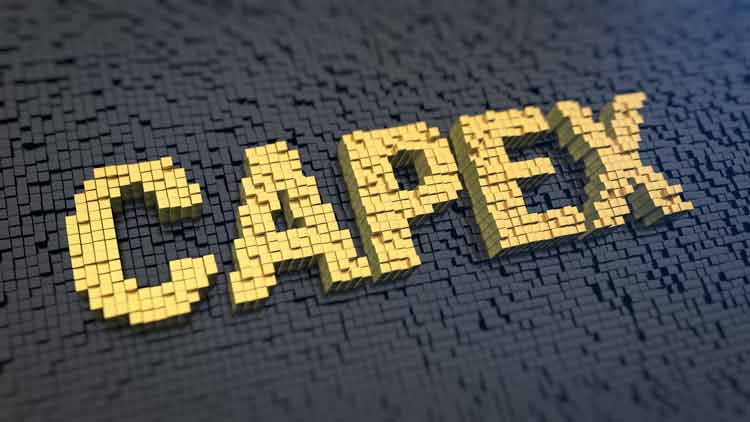-
CapEx and OpEx. Balancing Capital and Operational Expenditures.
Capital expenses (CapEx) earn plenty of attention. They’re typically large expenses that play a key role in the company’s future. As such, they require careful budgeting, planning, and management. Capital expenditure also more complicated in terms of taxes since CapEx expenses are depreciated to spread the cost of the asset over several years in accordance with tax regulations.
In a typical company, operating expenses (OpEx) don’t get nearly as much attention. Individually, operating expenditures are relatively small – the paper for a printer, for example, rather than the printer itself. They also don’t require as many resources to track because you handle them within one accounting period.
The importance of managing OpEx and balancing it with CapEx is starting to get more attention, though. Operational expenses account for a fairly large percentage of the budget, including discretionary investments in key areas such as marketing, operations, and sales. When you’re trying to cut costs, balancing your capital and operational expenses is a better plan than cutting either or both budgets without considering how they relate to each other.

The Difference Between CapEx and OpEx
The basic distinction between CapEx and OpEx involves how many tax years you’ll use the asset purchased. Capital expenditure includes items your company will use beyond the current tax year, such as a laser printer, a company vehicle, or real estate. The cost of these items is depreciated over several years to spread out tax deductions.
Operational expenditure includes items your company will use up in the current tax year. These are things like printer ink, electric bills, and outsourcing fees paid to a marketing agency. Operating expenses are fully deductible in the current tax year.
Separate CapEx and OpEx Budgets
Even though it can be useful to look at CapEx and OpEx together, most companies find it useful to budget for operational expenses and capital expenses separately. Capital expenditures require more careful planning and a more lengthy approvals process than operating expenses. The budgeting needs are different and it’s a good idea to take that into account when planning for the two types of expenditures.
Separating the budgets also makes it easier to handle taxes for each category of expenses. For purchases that are an operational expense, deductions apply to the current tax year. Deductions for capital expenditures are spread out over multiple years.

Take Control of Capital Expenses
Capital expense projects involve large money investments and require careful budgeting. NextProcess’ Capital Management Software gives you immediate control over your budget and increased insight into CapEx spend. It also works seamlessly with ERPs and lets you track expenses over several years.
The software’s built-in budgeting tools provide configurable levels of detail to meet your organization’s specific needs. You can work with our team of experts to configure the software platform for your company. NextProcess software is highly customizable and it grows with your business, scaling to your current needs.
For more information on this topic, check out our article “How To Take Control of Capital Expenditures and Efficiently Manage Your Company’s CapEx Spend.”
Fully Utilize Operating Expenses
Operational expenditure includes the day-to-day expenses required to keep the company going. Monthly or yearly expenses that help move the company forward are also OpEx. Examples include necessities like paying the electric bill and purchasing office supplies as well as discretionary spending in areas such as research and development, IT, and marketing.
Your purchasing department is typically very involved with this category of expenses. To make this process more efficient, NextProcess’ Purchase Order Module works to increase oversite and the accuracy of your procurement. Unlike many other purchasing systems, our software is highly configurable and user-friendly. This makes it easy for employees to shop within a system that automatically enforces your procurement policy.
For more information on this topic, check out our article “10 Important Ways That Using Purchase Orders Benefits Your Company.”

Finding The Line Between CapEx and OpEx
In some situations, the lines between capital and operational expenses are very distinct. Purchasing land for a new building is a capital expense. Buying pens for the office is an operational expense. However, there are situations where you could choose to make something either a capital or operating expense. In that case, which do you pick?
Because operational expenses count 100% as a tax deduction for the current year, many companies are looking for ways to turn elements of their CapEx into OpEx. There are a few ways to do this. One example is leasing equipment instead of purchasing it. When leasing, your business can deduct the full cash expense when computing its taxes for that accounting year.
Balancing CapEx and OpEx
Another way companies are turning expenses that were traditionally CapEx into OpEx is in the IT realm. Rather than making a CapEx purchase of a server, storage hardware, and software licenses, you can use cloud-based software. Because this type of software-as-a-service is purchased as needed, costs fluctuate and it works better to characterize them as operational expenses. For example, using NextProcess’ online document management system can make the full cost of your data storage for a year tax-deductible in that year.
It won’t work for every type of expense, but in some situations re-thinking CapEx as OpEx can help balance the budget. But no matter what category of expenses you’re talking about, NextProcess’ software can help you manage your budgets efficiently. Plus, all our software tools integrate seamlessly with each other and with your existing ERPs to make things even easier. Contact us today to learn more or schedule a free demo.
Disclaimer: The information on this website should not be used in any actual transaction without the advice and guidance of a professional Tax Adviser who is familiar with all the relevant facts.
Although the information contained here is presented in good faith and believed to be correct, it is general in nature and is not intended as tax advice. Furthermore, the information contained herein may not be applicable to or suitable for the individuals’ specific circumstances or needs and may require consideration of other matters.